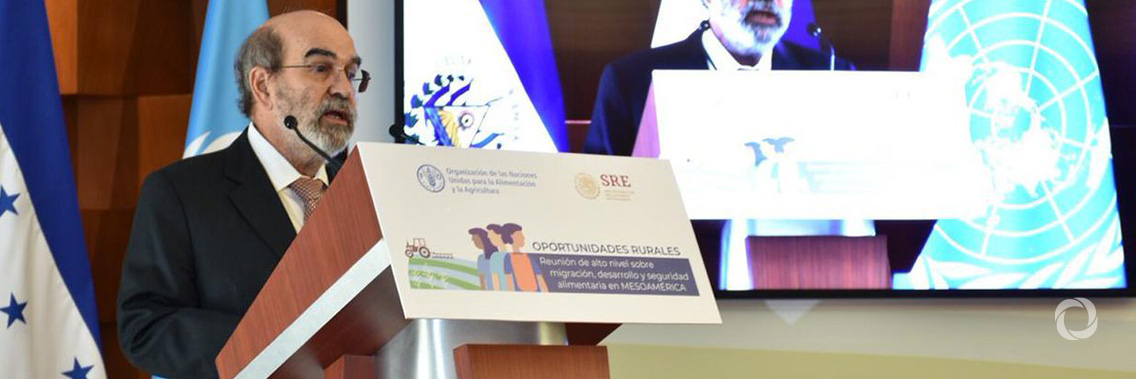A joint action program to promote rural development and the eradication of extreme poverty and hunger so that migration becomes an option and not a necessity is the objective of a High-level meeting on migration, development and food security in Mesoamerica that kicked-off in Mexico City.
“Migration must be a voluntary act and not a forced last resort,” FAO Director-General José Graziano da Silva said at the event. “Poverty, hunger, climate change, insecurity – that is, severe underdevelopment – create a perfect storm in which thousands of people see only one way out: to emigrate. The fundamental solution to forced migration is development,” he told over 100 delegates from El Salvador, Guatemala, Honduras and Mexico participating in a two-day meeting to discuss a joint proposal to tackle migration challenges in Mesoamerica through a comprehensive development plan.
The FAO chief welcomed the commitment signed by heads of state of the four countries on 1 December 2018 to promote a comprehensive development plan to tackle irregular migration and pledged FAO’s support to their governments to promote the development of rural territories, which are the main centers of origin of migrants.
The action program will consider, among other aspects, rural climate resilience and the adaptation of agriculture to climate change; the creation of agricultural and non-agricultural employment; the generation of income and the promotion of family farming.
It will be in line with the 2030 Agenda for Sustainable Development and the Global Compact on Migration, adopted by the United Nations Assembly in December 2018.
FAO Director-General called on governments to give greater support to the Central American Dry Corridor, an area of great climatic vulnerability and high rates of poverty, whose deterioration is driving migration.
According to FAO and the World Food Programme, more than 2 million people have seen their livelihoods severely affected, and 1.4 million of them are currently in need of food assistance as a result of last year’s climatic effects.
Original source: FAO
Published on 02 July 2019

